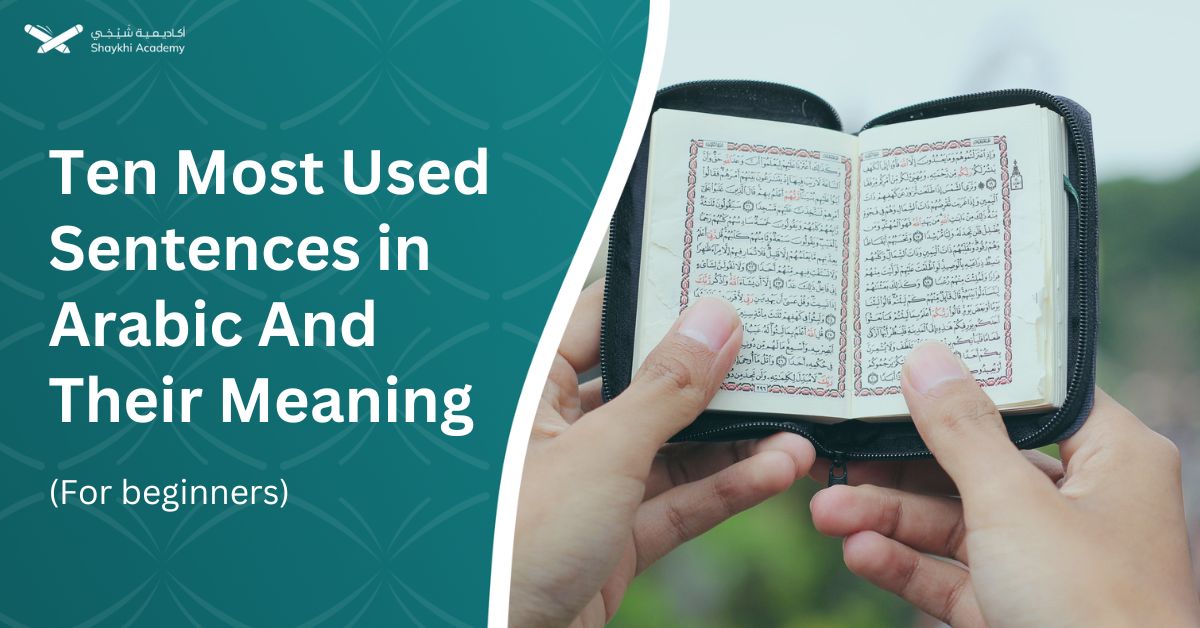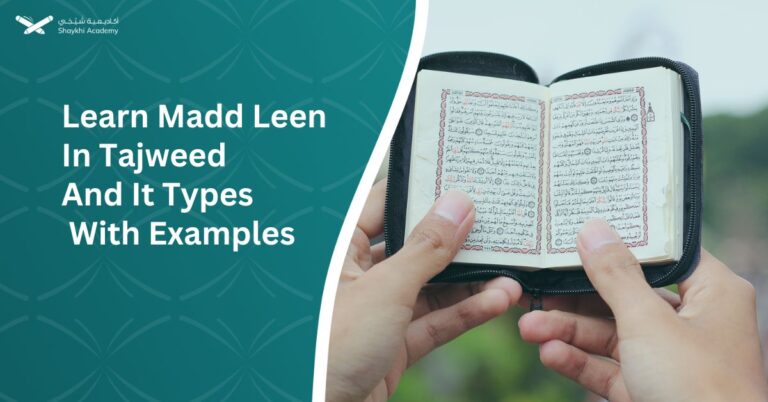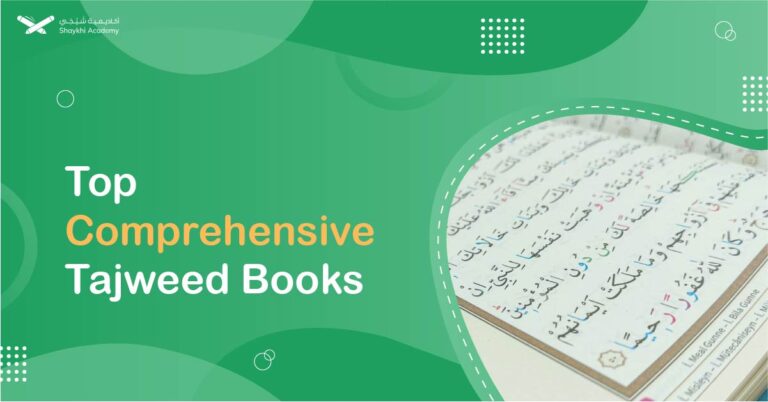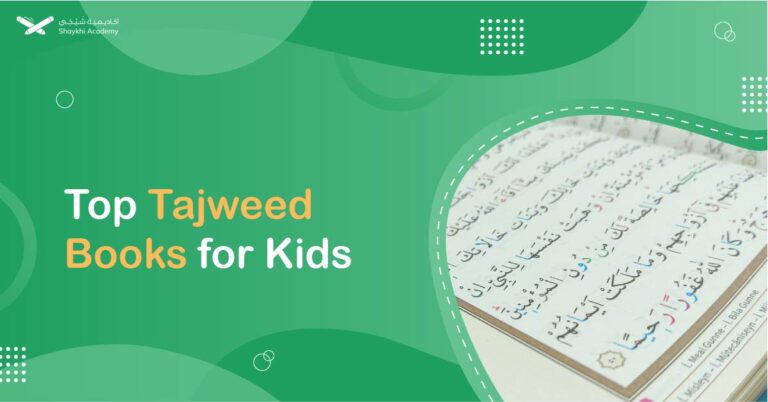Mosed Used Sentences in Arabic: In the realm of linguistic exploration, our conversation has delved into the intricate beauty of the Arabic language. From common expressions to culturally rich terms, we’ve navigated the nuances that shape communication within Arabic-speaking communities.
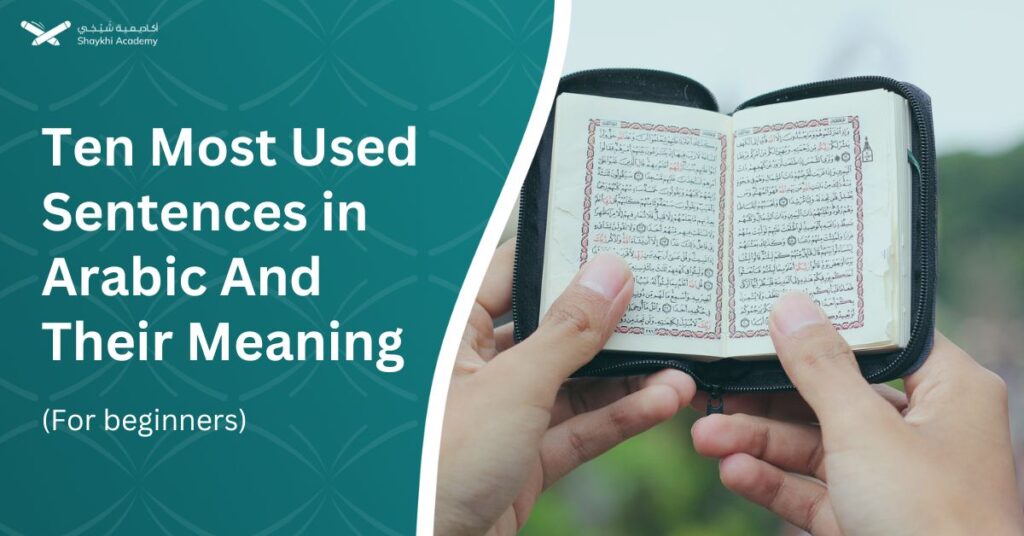
Ten Most Used Sentences in Arabic:
Arabic, like any other language, has a variety of commonly used sentences and phrases that are frequently used in daily communication. These phrases and sentences are loaded with cultural significance that only a professional tutor specialized in the Arabic language; such as the tutors of Shaykhi Academy’s Arabic online courses.
Here are the ten most used sentences in Arabic:
1- Thank You in Arabic:
Expressing gratitude in Arabic is a heartfelt and culturally significant gesture. The equivalent of “Thank You” in Arabic is شكرًا (Shukran), which is the cornerstone of conveying appreciation. When uttered with sincerity, it encapsulates a deep sense of thankfulness and acknowledgment.
The beauty of شكرًا lies not only in its linguistic simplicity but also in the cultural richness it represents. Whether exchanged casually in day-to-day interactions or employed in more formal settings, this expression carries a profound weight, reflecting the values of politeness and respect deeply ingrained in Arab societies.
It is more than a mere exchange of words; it embodies a tradition of recognizing kindness, assistance, or hospitality. In the tapestry of Arabic communication, شكرًا is a thread that weaves connections, fostering positive relationships and emphasizing the importance of gratitude in interpersonal dynamics.
2- Habibi Meaning in Arabic:
Habibi, meaning ‘my beloved’ or ‘my dear’ in Arabic, is a term of endearment that transcends mere linguistic significance. Embedded in the rich cultural fabric of Arabic-speaking communities, ‘Habibi’ reflects affection, warmth, and a profound connection between individuals.
This expression of endearment is not restricted by gender or age; it is a versatile term used to convey love, friendship, or even camaraderie.
In the context of familial relationships, ‘Habibi’ may be exchanged between parents and children, siblings, or grandparents, encapsulating a sense of deep familial love. Among friends, it is a symbol of camaraderie, shared experiences, and a bond that extends beyond words. In romantic relationships, ‘Habibi’ becomes a whispered affirmation of love and devotion.
Its versatility allows it to seamlessly navigate various contexts, making it a universal term that resonates with the intrinsic values of compassion, connection, and genuine affection.
Thus, “Habibi” meaning in Arabic goes beyond translation; it encapsulates the essence of heartfelt relationships and the beauty of expressing love in the Arabic language.
3- Haram Meaning in Arabic:
The term “Haram,” originating from Arabic, carries a historical and linguistic depth that extends beyond its literal translation. Rooted in Islamic tradition, the word finds its origins in the Quran, where it denotes what is forbidden or prohibited by Islamic law.
The concept of ‘Haram’ serves as a moral and ethical guide, delineating actions or substances that are considered sinful or impermissible. In the context of Islamic finance, it extends to interest (riba) and certain economic activities.
Muslims can learn about such concepts and how to incorporate it in their lives through Islamic and Quranic courses; for example: the Tafseer course at Shaykhi Academy, in which a tutor attempts to explain the verses, and help the student embody them in their everyday lives.
Beyond religious contexts, ‘Haram’ meaning in Arabic has seeped into the colloquial language, gaining usage in various Arab societies to express disapproval or denounce socially unacceptable behaviors.
This linguistic evolution reflects the cultural integration of religious principles into daily life, making ‘Haram’ a term that not only signifies religious boundaries but also serves as a societal marker, reinforcing values and ethical considerations within the broader Arabic-speaking community.
Read Aslo: Where to learn Arabic: countries, universities, and websites.
4- Hello in Arabic Language:
Greeting in Arabic language is often initiated with the warm and universal expression ‘Marhaban.’, which stands for Hello in Arabic language. The word ‘Marhaban’ serves as a welcoming salutation, inviting connection and hospitality.
Rooted in the rich linguistic tapestry of Arabic, ‘Marhaban’ encapsulates not only a customary greeting but also reflects the cultural emphasis on warmth and respect in interpersonal communication. Whether used in formal or informal settings, this phrase transcends mere words, embodying the spirit of hospitality ingrained in Arab traditions.
Hello in Arabic language is more than a simple salutation; it is an invitation to engage, connect, and share in the mutual respect that defines the dynamics of communication in Arabic-speaking communities.
5- Mom in Arabic Language:
The term ‘أم’ (Umm) means Mom in Arabic language. This simple yet profound word encapsulates the essence of maternal love and the universal bond between a mother and her child.
In Arabic culture, the term أم ‘Umm’ goes beyond its linguistic roots, representing a symbol of nurturing, guidance, and unwavering support. It is a word spoken with reverence and affection, reflecting the pivotal role mothers play in shaping families and communities.
The resonance of ‘Umm’ echoes through daily interactions, celebrations, and moments of solace, underscoring the profound impact of mothers in Arab societies.
The cultural significance embedded in this word transcends language, embodying a universal understanding of the profound and enduring love associated with the term of Mom in Arabic language.
6- Goodbye in Arabic Language:
Saying ‘Goodbye’ in Arabic language is expressed through the phrase ‘وداعًا’ (Wada’an) or ‘إلى اللقاء’ (Ila al-liqaa), both conveying a sense of farewell and parting.
‘Wada’an’ is infused with a touch of sincerity and well-wishing, while ‘Ila al-liqaa’ directly translates to ‘Until we meet again,’ emphasizing the hope for a future reunion.
Parting words in Arabic hold a cultural depth, recognizing the transient nature of farewells and the potential for future encounters. Whether bidding farewell to friends, family, or acquaintances, these expressions encapsulate the sentiment of leaving with grace and the anticipation of future connections.
The beauty of ‘Goodbye’ in Arabic language lies not only in the linguistic nuances but also in the cultural acknowledgment of the ebb and flow of relationships and the optimism for future meetings.
7- Happy Birthday in Arabic Language:
Wishing someone a ‘Happy Birthday’ in Arabic language is joyfully expressed through the phrase ‘عيد ميلاد سعيد’ (Eid Milad Saeed). This heartfelt greeting encapsulates the celebration of another year of life, marked by warmth, good wishes, and the spirit of festivity.
Whether exchanged between family, friends, or colleagues, ‘Eid Milad Saeed’ is a universal expression that transcends cultural and linguistic boundaries. In Arabic-speaking communities, the emphasis on familial ties often makes birthday celebrations a cherished occasion.
The phrase not only conveys the joyous occasion but also reflects the cultural value of acknowledging and appreciating the milestones of life. Birthdays become an opportunity to spread happiness, share good wishes, and celebrate the uniqueness of each individual within the Arabic cultural context.
8- Gorgeous in Arabic Language:
The term for ‘gorgeous’ in Arabic language is often expressed as ‘جميل’ (jameel) or ‘جميلة’ (jameela) for feminine form. These words convey a sense of beauty and attractiveness, enclosing both physical and aesthetic appeal.
When complimenting someone’s appearance or praising an exquisite object, ‘جميل’ serves as a versatile term that captures the essence of loveliness. Beyond the surface, it can also extend to describe beautiful qualities of character or deeds.
In the rich cultural context of Arabic-speaking communities, the appreciation for beauty, whether in the form of nature, art, or individuals, is woven into the fabric of daily interactions, making ‘جميل’ a term that resonates with admiration and positive regard.
9- Greeting in Arabic Language:
Greeting in Arabic language is an art woven with cultural richness and genuine warmth. The customary expression ‘السلام عليكم’ (As-salamu alaykum) serves as the cornerstone of greetings, translating to ‘Peace be upon you.’ This phrase not only conveys a desire for peace but also reflects the profound Islamic values of harmony and goodwill.
The response, ‘وعليكم السلام’ (Wa alaykum as-salam), reciprocates the sentiment, creating a mutual exchange of blessings. Greetings in Arabic extend beyond mere pleasantries; they are a reflection of hospitality, respect, and a recognition of the shared humanity among individuals.
Whether exchanged casually on the streets, in homes, or during formal occasions, greetings in Arabic language establish an immediate connection, fostering a sense of unity and camaraderie within the diverse Arabic-speaking communities.
10- Jihad meaning in Arabic Language:
In Arabic, the term “Jihad” (جهاد) holds a significant and nuanced meaning. Rooted in Islamic tradition, Jihad translates to “struggle” or “striving.” While commonly associated with armed conflict in popular discourse, its true essence encompasses a broader spectrum.
Jihad can manifest as a personal, spiritual struggle for self-improvement, adherence to moral principles, or the pursuit of justice. It also encompasses collective efforts to defend one’s faith, community, or uphold social justice.
The misinterpretation of Jihad solely as a call to violence is a distortion; its primary emphasis lies on striving for goodness and righteousness in various aspects of life.
Understanding the multifaceted nature of Jihad is crucial for appreciating its significance within the context of Islamic teachings and the diverse ways it can be applied positively in personal and societal realms, which can be accomplished by joining Islamic courses; such as Shaykhi Academy’s Islamic Studies Online Course.
Sail on an exciting voyage of shaykhi Academy’s Arabic Online Course to become proficient in Arabic.
Engage in the art of communication with experienced instructors who bring expertise and enthusiasm to each session. Shaykhi Academy’ Arabic classes offer a unique combination of language skills and cultural understanding, providing a deep grasp of Arabic that goes beyond basic language learning.
The classes are suitable for all levels, ensuring tailored and effective learning experiences for both beginners and advanced learners.
With a focus on practical conversational abilities, Shaykhi’s approach is lively and captivating, making the learning process enjoyable and effective. Don’t miss the chance to explore the beauty of the Arabic language and culture through these carefully crafted courses.
Enroll now and open the door to a world of language mastery and cultural appreciation! Start your voyage with us now!
Each word, whether a simple greeting or a profound concept like “Jihad,” has unveiled layers of cultural significance and historical depth. Through exploring the meanings of words like “Habibi,” “Haram,” and “Umm,” we’ve glimpsed into the cultural tapestry that weaves together the diverse Arabic-speaking societies.
